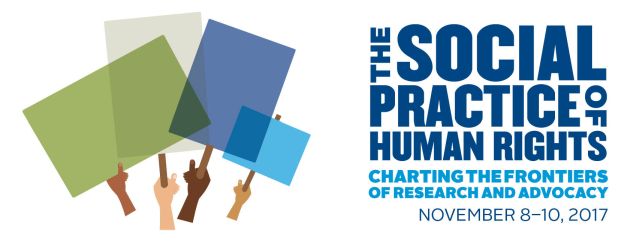
Start Date
11-9-2017 10:30 AM
Keywords
Gender, Transitional Justice, Displacement, International Organisations, Forced Migration
Abstract
In the past fifteen years, there has been huge emphasis on the need for gendered mechanisms dealing with both forced migration and peacebuilding. The UN landmark resolution on Women, Peace and Security (S/RES/1325) and the gender-mainstreaming of the 1951 Refugee Convention have urged all actors to increase the participation of women in peacebuilding and their protection in instances of displacement. An underdeveloped link between these issues has not been addressed by the academic community, particularly when looking at societies in transition and the relationship of displaced women to international migration organisations in the context of transitional justice. This study aims to rectify this by asking, "Does involvement in programmes run by international organisations (IO) such as UNHCR and IOM affect displaced women's agency in transitional justice contexts?"
This research brings together the fields of forced migration, transitional justice (TJ), and gender mainstreaming. In doing so, the author will assess the involvement of female IDPs and returned refugees with organisations that deal with displacement; this is to assess whether plans of resettlement and return encourage greater political involvement of women in transitional justice.
A comparative study of Colombia and Liberia using qualitative thematic analysis will be conducted with both female IDPs and returned refugees who have dealt with UNHCR and IOM through programmes of return or protection. By using Foucault’s writings on governmentality and Crenshaw’s intersectionality as theoretical frames, the research will use feminist qualitative thematic analysis to unpack themes related to agency in transitional justice, so as to highlight potential gaps between organisational policy and practice and to explore the effect of displacement and return on women’s agency in post-conflict situations.
The results of this research will have an impact on both the academic sector and the gender mainstreaming policies of international migration organisations in post-conflict contexts.
Included in
Human Rights Law Commons, International Law Commons, International Relations Commons, Other Feminist, Gender, and Sexuality Studies Commons
Gender, Displacement and Transitional Justice
In the past fifteen years, there has been huge emphasis on the need for gendered mechanisms dealing with both forced migration and peacebuilding. The UN landmark resolution on Women, Peace and Security (S/RES/1325) and the gender-mainstreaming of the 1951 Refugee Convention have urged all actors to increase the participation of women in peacebuilding and their protection in instances of displacement. An underdeveloped link between these issues has not been addressed by the academic community, particularly when looking at societies in transition and the relationship of displaced women to international migration organisations in the context of transitional justice. This study aims to rectify this by asking, "Does involvement in programmes run by international organisations (IO) such as UNHCR and IOM affect displaced women's agency in transitional justice contexts?"
This research brings together the fields of forced migration, transitional justice (TJ), and gender mainstreaming. In doing so, the author will assess the involvement of female IDPs and returned refugees with organisations that deal with displacement; this is to assess whether plans of resettlement and return encourage greater political involvement of women in transitional justice.
A comparative study of Colombia and Liberia using qualitative thematic analysis will be conducted with both female IDPs and returned refugees who have dealt with UNHCR and IOM through programmes of return or protection. By using Foucault’s writings on governmentality and Crenshaw’s intersectionality as theoretical frames, the research will use feminist qualitative thematic analysis to unpack themes related to agency in transitional justice, so as to highlight potential gaps between organisational policy and practice and to explore the effect of displacement and return on women’s agency in post-conflict situations.
The results of this research will have an impact on both the academic sector and the gender mainstreaming policies of international migration organisations in post-conflict contexts.


